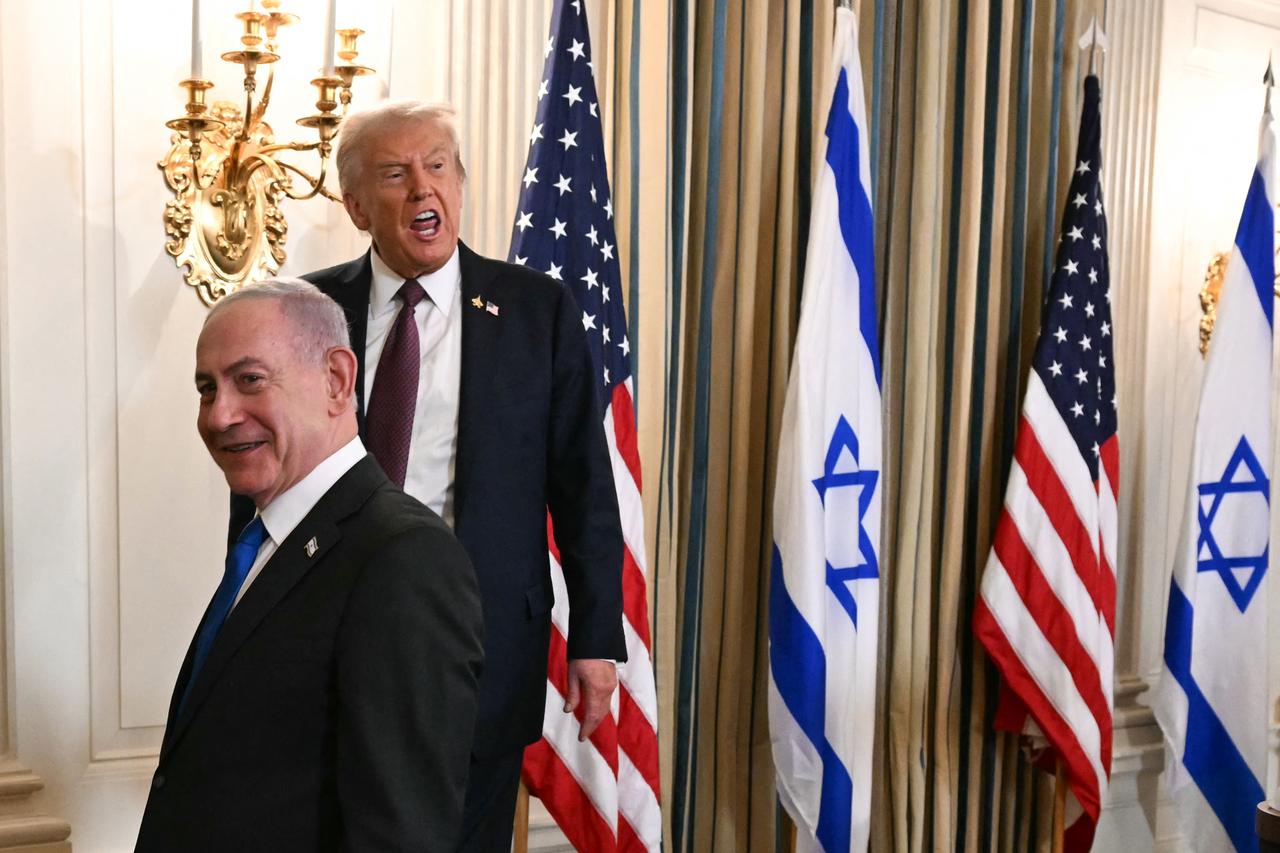
U.S. President Donald Trump and Israeli Prime Minister Benjamin Netanyahu on Monday presented a joint front aimed at pressuring Hamas to accept a U.S.-backed peace proposal that was negotiated without the Palestinian group's participation, raising questions about the plan's viability.
Speaking at a White House press conference, Netanyahu issued a stark ultimatum: accept the deal or face complete military defeat.
"If Hamas rejects your plan, Mr. President, or if they supposedly accept it and then basically do everything to counter it, then Israel will finish the job by itself," Netanyahu said. "This can be done the easy way, or it can be done the hard way, but it will be done."
Trump echoed the threat, saying Israel would have his "full backing to finish the job of destroying the threat of Hamas" if the group rejected the proposal.
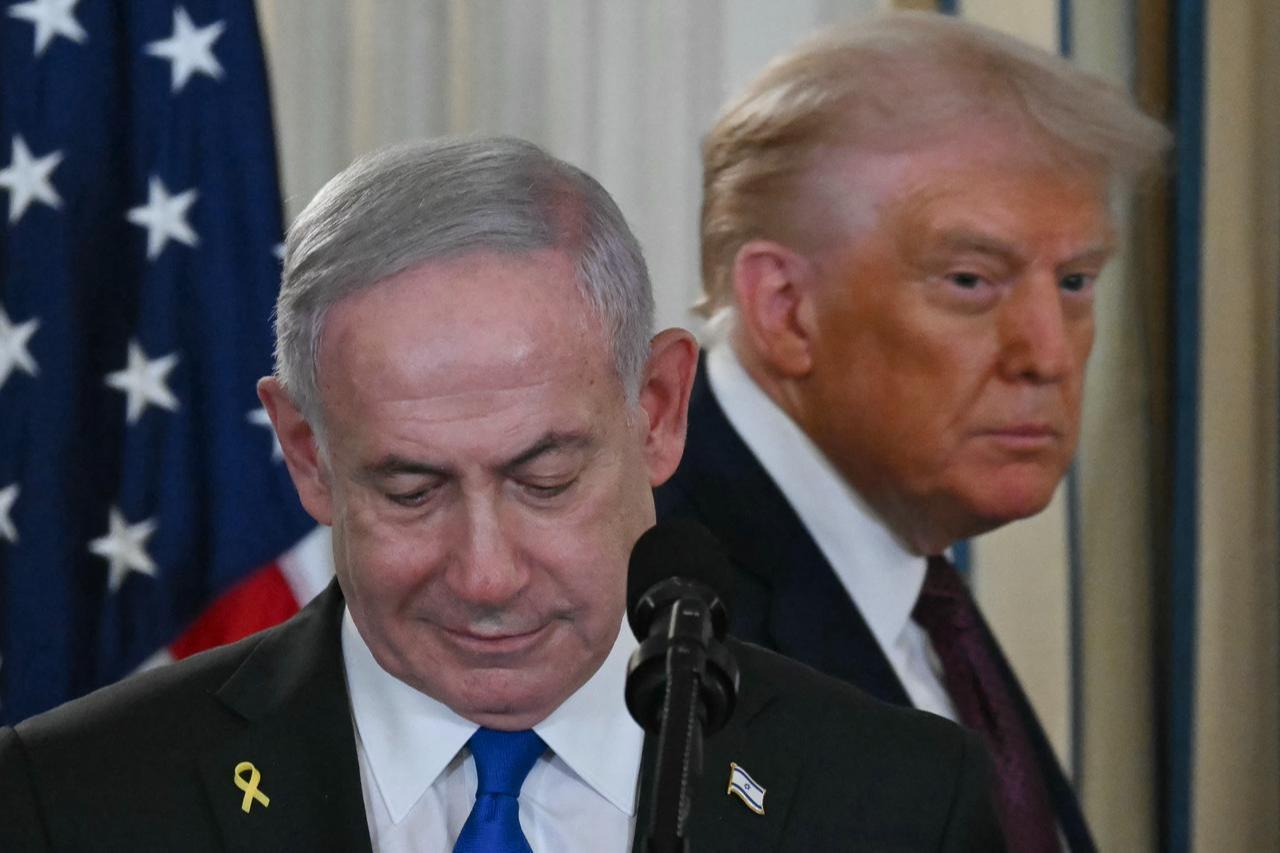
The 20-point plan, which Trump said he has circulated to Arab leaders, calls for an immediate cease-fire, hostage releases, Hamas disarmament and a phased Israeli withdrawal from Gaza. Netanyahu expressed support for the framework, saying it "achieves our war aims."
"I support your plan to end the war in Gaza which achieves our war aims. It will bring back to Israel all our hostages, dismantle Hamas's military capabilities, end its political rule and ensure that Gaza never again poses a threat to Israel," Netanyahu said.
Yet significant tensions remained visible beneath the show of U.S.-Israeli unity. Netanyahu made clear that Israel's vision for Gaza's future diverged from some elements of the plan, particularly regarding long-term security arrangements and civilian governance.
"Hamas will be disarmed. Gaza will be demilitarized. Israel will retain security responsibility, including a security perimeter, for the foreseeable future. And lastly, Gaza will have a peaceful, civilian administration that is run neither by Hamas nor by the Palestinian Authority," Netanyahu said.
That latter point appeared to contradict elements of the U.S. plan, which envisions eventual Palestinian Authority control after reforms are completed. Netanyahu's categorical rejection of any PA role without what he termed "radical" change underscored the fragility of the proposal.
Journalist Levent Kemal, speaking to Türkiye Today, argued the plan fundamentally centers Israeli political demands while excluding Palestinian representation. "The plan is essentially built on Israel's political demands and shaped within this framework. It excludes the Palestinian people's will and their elected administrators, imposing an international committee and technocrats on Palestine, thus turning it into an essentially autonomous, undefined region," Kemal said.
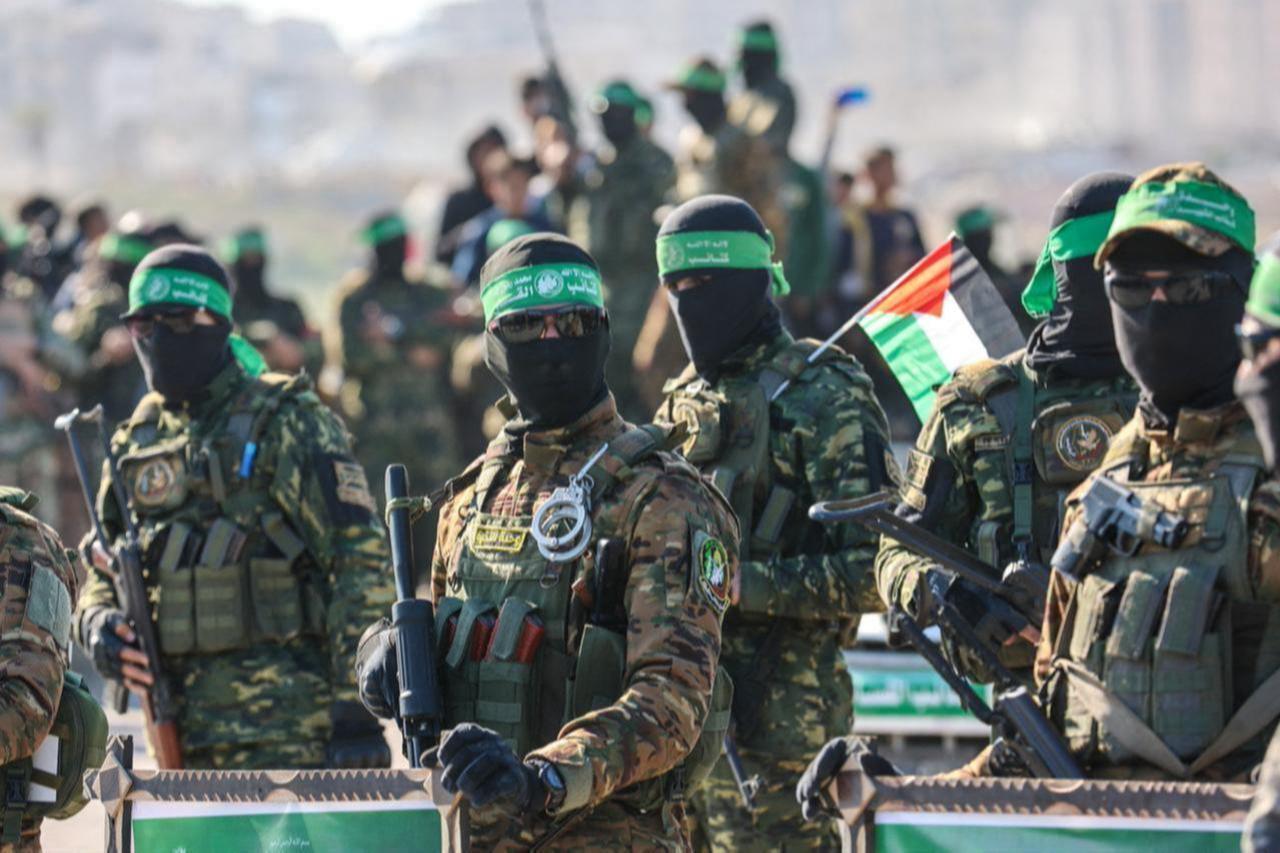
The plan was developed through consultations between Washington and Jerusalem but without Hamas involvement, a process that left the group's response uncertain. Hamas had not commented on the proposal by Monday evening.
Regarding Hamas's exclusion from negotiations, Kemal characterized the plan as demanding the group's self-dissolution. "From this perspective, it is a difficult plan to implement. Hamas will probably request revisions to the plan. Because Hamas exists in Gaza as a legitimate representative, together with the people of Gaza for years. From this perspective, it is difficult to implement," he told Türkiye Today.
Trump claimed the deal had broad support beyond Israel, saying approval from all sides was "beyond very close." He characterized Hamas as the sole holdout in what he portrayed as a regional consensus.
"I hope that we're going to have a deal for peace, and if Hamas rejects the deal, which is always possible, they're the only one left, everyone else has accepted it, but I have a feeling that we're going to have a positive answer," Trump said.
The U.S. president had met key Arab leaders at the United Nations last week and said Sunday on social media that "ALL ARE ON BOARD FOR SOMETHING SPECIAL, FIRST TIME EVER."
Trump thanked Netanyahu for his backing and expressed optimism that Hamas would follow suit. "I also want to thank Prime Minister Netanyahu for agreeing to the plan and for trusting that if we work together, we can bring an end to the death and destruction that we've seen for so many years," Trump said.
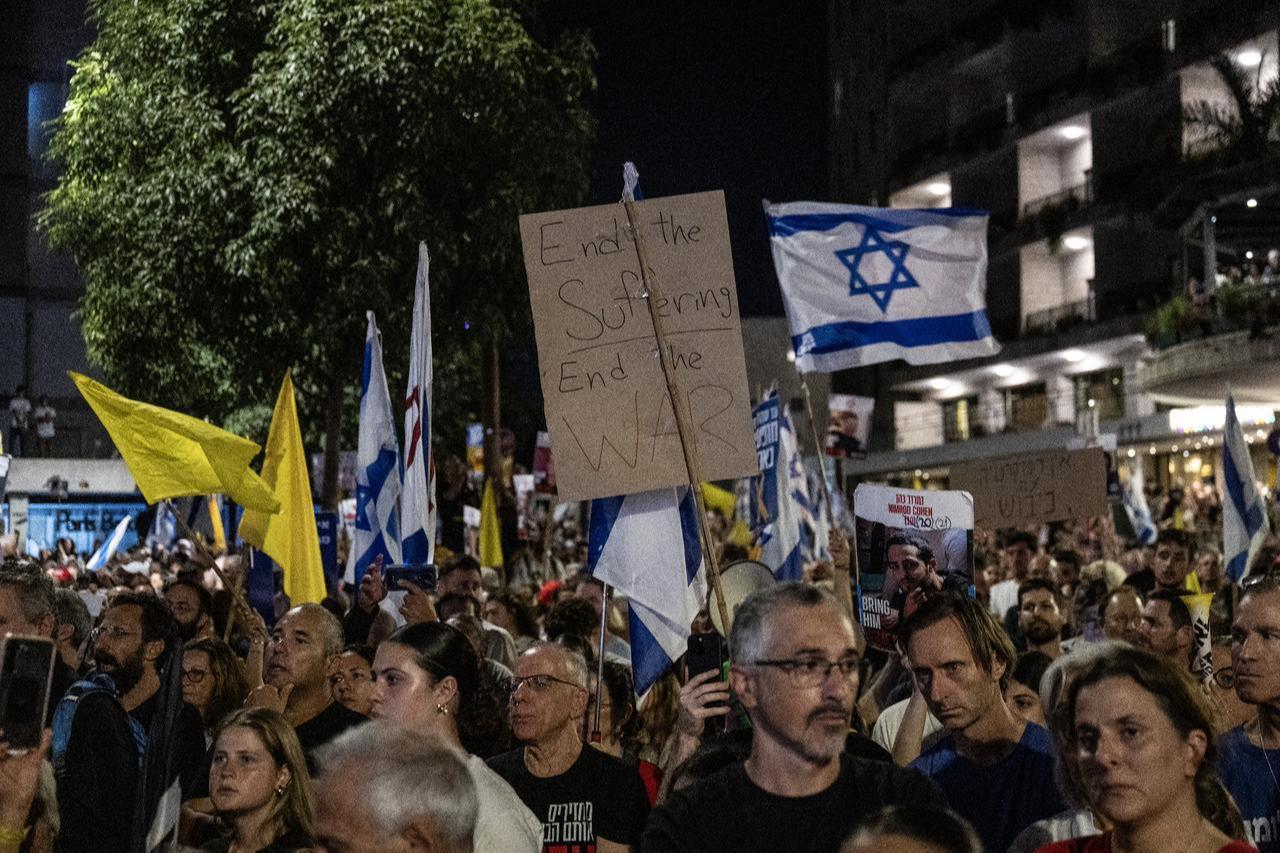
The Hostages and Missing Families Forum, the main Israeli group representing families of those held in Gaza, praised the agreement and called for international pressure on Hamas to accept it.
"This is a historic agreement that will allow our people to heal, end the war, and chart a new future for the Middle East," the group said in a statement, commending Netanyahu for accepting the plan. "The world must apply maximum pressure to ensure Hamas commits to this historic opportunity for peace."
The proposal includes provisions for hostage release and prisoner exchanges. Under the framework, Hamas members who agree to "peaceful co-existence" and disarm would receive amnesty, though the group would be barred from any future governance role.
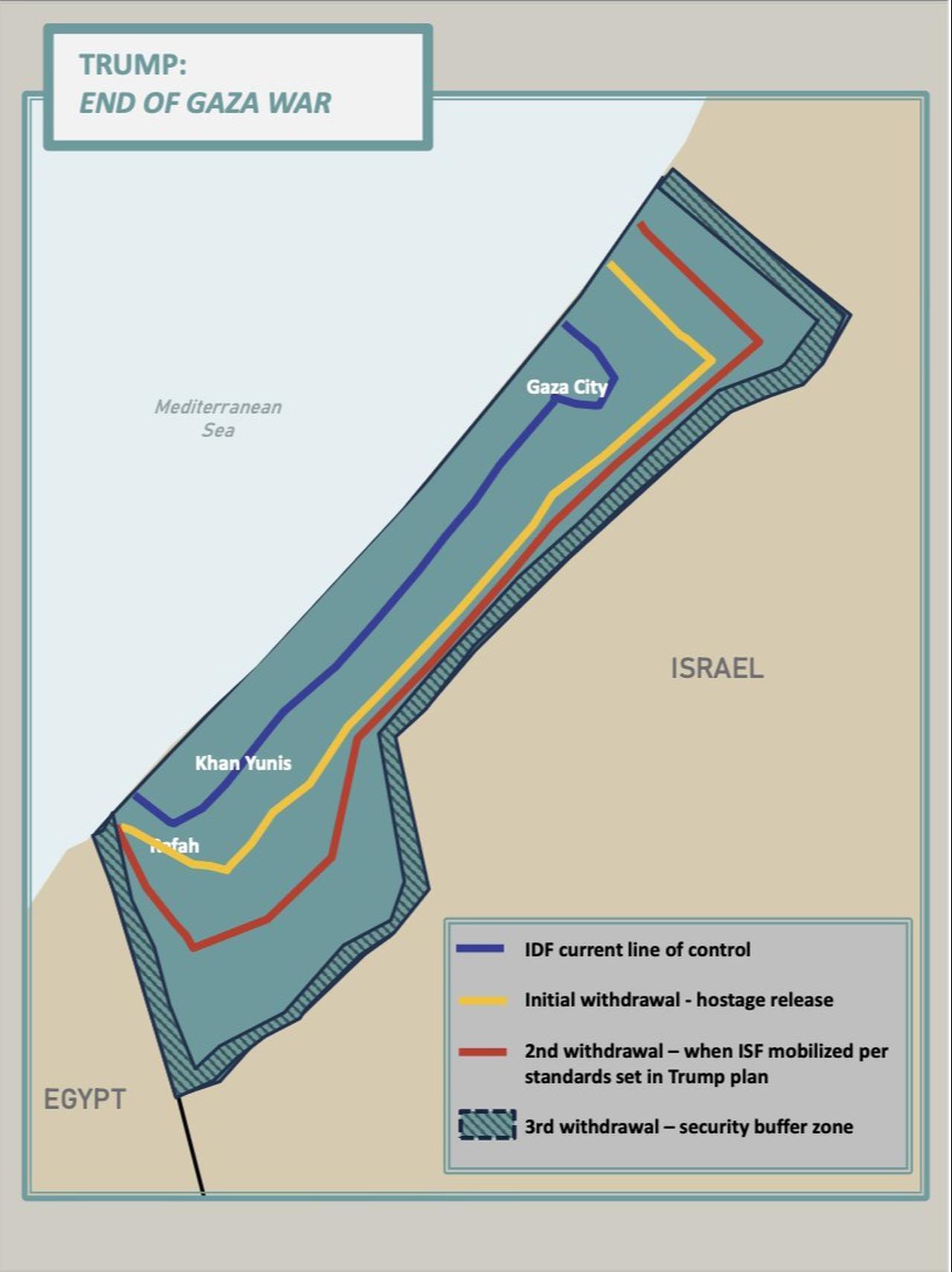
Trump said the plan would establish a timeline for phased Israeli withdrawal coordinated with a new transitional authority that would govern Gaza. "Working with the new transitional authority in Gaza, all parties will agree on a timeline for Israeli military to withdraw in phases," Trump told reporters.
However, Netanyahu's insistence on maintaining Israeli security responsibility "for the foreseeable future" raised questions about how this would align with the withdrawal timeline and the deployment of what the plan describes as a "temporary international stabilization force."
Many crucial details remained unclear, including how Israeli security control would coexist with international peacekeepers, when exactly Israeli military would fully withdraw, and whether the Palestinian Authority would have any role despite Netanyahu's objections.
Kemal criticized the plan's one-sided approach, noting it imposes disarmament on Hamas while placing no restrictions on Israel. "The plan presents a Gaza that is very vulnerable to any Israeli attack in the long term. A disarmed Gaza, stripped of its means of self-protection. However, in peace agreements, there should be bilateral sanctions and restrictive proposals. Because there are no conditions restricting Israel in this plan. This is completely an Israeli proposal," he told Türkiye Today.
The meeting came amid signs of growing U.S. frustration with Netanyahu. Normally a staunch ally of the Israeli leader, Trump has shown increasing signs of impatience ahead of Netanyahu's fourth White House visit since Trump's return to power.
Trump was angered by Israel's recent strike on Hamas members in Qatar, a key American ally. He also warned Netanyahu last week against annexing the Israeli-occupied West Bank, as some of Netanyahu's cabinet members have urged — a move that would seriously complicate the route to Palestinian statehood.
Netanyahu had recently given little reason for optimism about peace prospects, vowing in a defiant United Nations speech Friday to "finish the job" against Hamas and rejecting Palestinian statehood, which has been recently recognized by several Western nations.
Netanyahu's coalition government is propped up by far-right ministers who oppose a peace deal, complicating his ability to make concessions even as he publicly backed Trump's framework.
"A plan similar to this was proposed last year in May when the Biden administration was in power, and it was rejected by Netanyahu, saying 'This plan does not meet our ideological goals.' Today he accepts this plan. But back then he rejected it for more occupation. Today, with some variables, what Israel wants is being realized," he told Türkiye Today.
In Gaza, residents expressed a mix of hope, exhaustion and distrust ahead of the White House meeting. "I don't expect anything from Trump, because Trump supports Netanyahu in destroying the Gaza Strip," said Mohammed Abu Rabee, 34 to AFP.
Israeli strikes continued across the Gaza Strip on Monday, killing at least four people in Khan Yunis, according to the Hamas-run territory's civil defense agency.
The Gaza war was triggered by Hamas's Oct. 7, 2023 attack. Israel in retaliation killed 66,055 Palestinians, mostly civilians, according to the Gaza Health Ministry on Monday. Israel's offensive has killed 66,055 Palestinians, also mostly civilians, according to health ministry figures in the Hamas-run territory that the United Nations considers reliable.
In a crucial change from Trump's earlier apparent goals, Palestinians will not be forced to leave Gaza. Instead, the document said, "we will encourage people to stay and offer them the opportunity to build a better Gaza."
The deal would demand Hamas fully disarm and be excluded from future roles in the government. However, those who agreed to "peaceful co-existence" would be given amnesty. Following Israeli withdrawal, the borders would be opened to aid and investment.
The plan also calls for deployment of a "temporary international stabilization force" and creation of a transitional authority headed by Trump himself and featuring other foreign leaders, including former British Prime Minister Tony Blair.